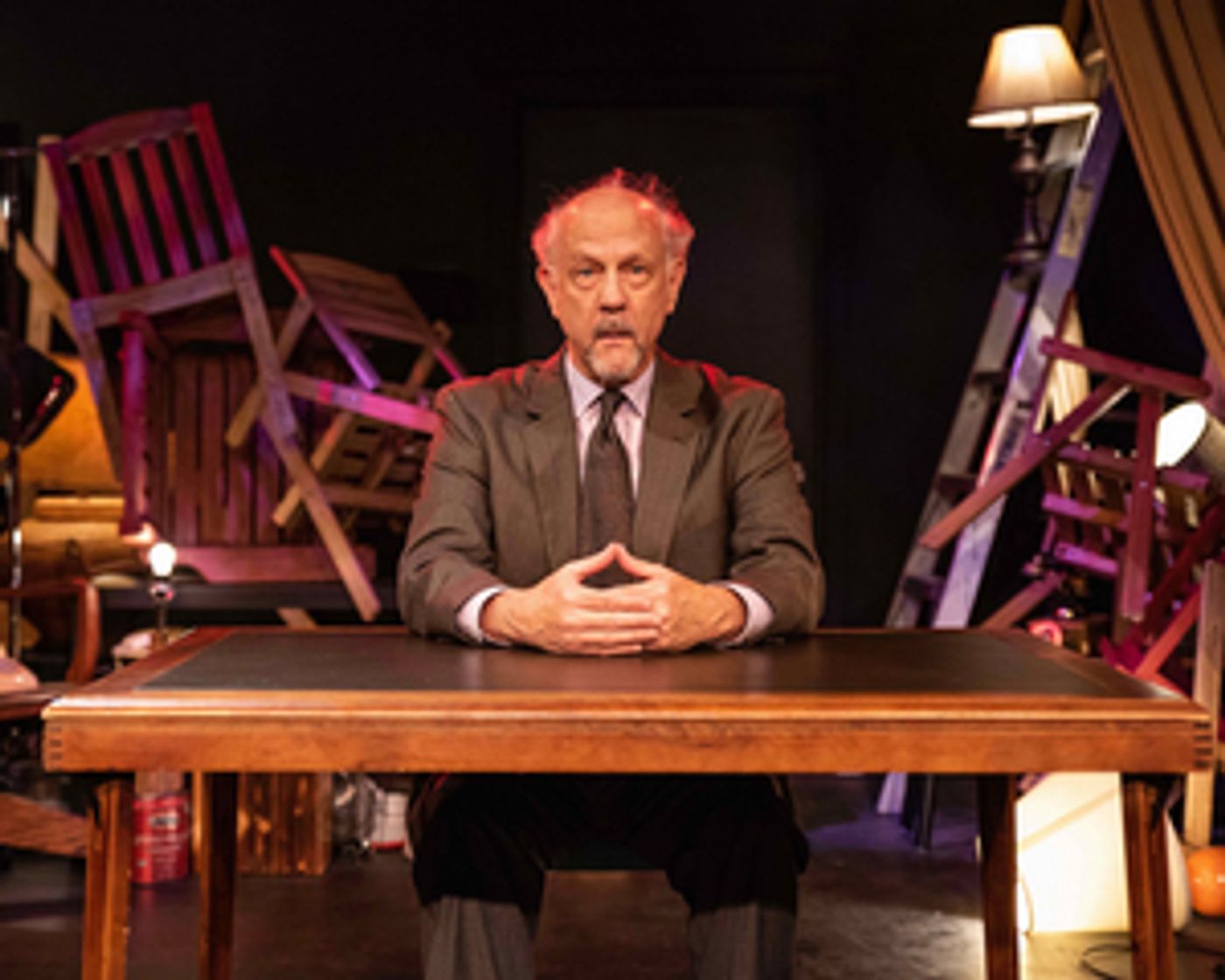Review: STAND UP IF YOU'RE HERE TONIGHT Seeks a Human Connection
Offbeat meditative play runs through September 25

Our host is middle aged, the picture of nondescript. He has a high forehead and slightly watery eyes. He is wearing a suit and tie which he does not make look the least bit natty. If he has a name, we never learn it. If his words are to be believed, he is genuinely delighted to be in our midst, in anybody's midst. "You're here," he says equal parts grateful and disbelieving. "Welcome, welcome, welcome."
And welcomed we are. Also conditioned and ever so slightly badgered. Sixty minutes spent in the company of an individual this thirsty for a human connection can be a bit exhausting, but it's well worth the investment.
STAND UP IF YOU'RE HERE TONIGHT, a kooky but affecting (mostly) solo performance written by John Kolvenbach, is a textbook example of emerging-from-COVID drama. (EFCD?). A co-production of the VS. Theater Company and the Circle X Theatre Co., it plays in a tiny performance space within the Atwater Village Theatre complex to an audience of around 40 people, all of whom are masked and each of whom is required to furnish proof of vaccination against COVID prior to entry (at the performance I attended, some people did not do so). The performer, Jim Ortlieb, is not masked and he performs very close to the front row.
Is all of this unusual? Oh yeah, a little bit, but not to the point where it detracts from a better than average theatrical experience.
I was there, and oh yes, I did stand up; because everyone does. At some point, each and every of us qualifies as a member of the group that our man says he is looking for. And at some point, we sit, and then perhaps we stand again. We are made to clap rhythmically and hum harmonically to imitate a dial tone. "Sing an A to heal a divided nation!" our host begs. At other time, at what seems largely at random, Ortlieb calls for 10 seconds of silence, and my goodness, do those countdowns creep to their conclusion
Where is all this quirkiness leading, if not back to third grade? Where, indeed? Kolvenbach's journey is neither conventional nor particularly linear. There's a disjointedness that befits the piece and the mood. "I understand," Ortlieb says at the outset, addressing an audience as much in need as he is. "I can help." And perhaps he does and can.
Or maybe he doesn't. Truth is, once again, as we have done for centuries, we are 30 to 40 people assembled in a room again, this time under frightening, perilous circumstances that nobody really understands. We are here, a stage is set, drama happens. On both a basic and an existential level, that circumstance is enough to save our performer's life. And ours as well.
Reader Reviews
Videos

